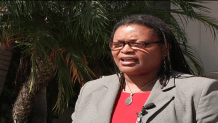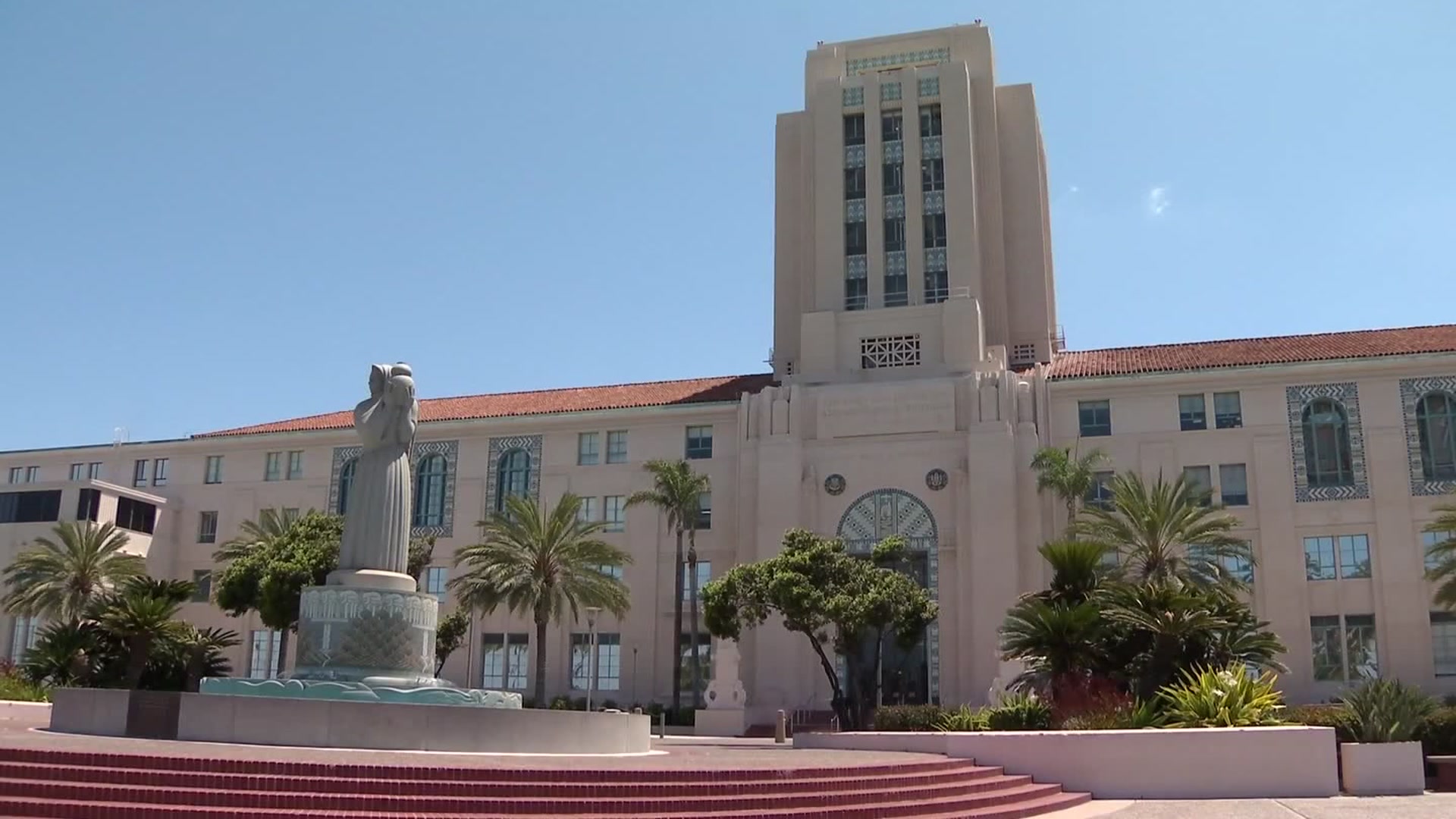Wilma J. Wooten, M.D. could not have predicted where the job would take her when she was hired to be San Diego County’s Public Health Officer on February 2, 2007.
The H1N1 virus, Hepatitis A, and in 2020, the novel coronavirus would ravage parts of the city she loves, and she would be called on to lead.
Wooten sat down with NBC 7 Anchor Catherine Garcia to look back on the first year of COVID-19 and the county’s response, step-by-step.
It all began in late-December 2019 and early January 2020 when her office began hearing reports from the World Health Organization of a novel virus discovered in Wuhan, China.
“Having the experience of the H1N1 pandemic, I was attuned to the fact that this was becoming or could have the potential to become a worldwide issue,” Wooten said. “But I didn't think to what extent. At least not to the extent that we've seen to date.”
Get top local stories in San Diego delivered to you every morning. >Sign up for NBC San Diego's News Headlines newsletter.
In 2009, San Diego was at the center of the H1N1 influenza virus pandemic in the country. The virus contributed to the deaths of 58 people locally, according to the San Diego Union-Tribune.

But COVID-19 was a much different situation.
As of February 25, 2021, the virus has infected more than 258,000 people locally and taken more than 3,230 lives, according to data from the County of San Diego’s Health and Human Services.
Local
Wooten recounted how she kept county health employees on track to fight the virus head-on.
“My mantra is that failure is not an option."
Wilma Wooten, M.D. - San Diego County Public Health Officer
By February 2020, San Diego County’s MCAS Miramar was designated to accept some of the first “diplomatic evacuees” arriving by plane from Wuhan, China, Wooten said. The next month, she received word that a cruise ship was coming to the mainland with passengers testing positive for COVID-19.
Wooten said the federal government looked to San Diego as a solution for the problem.
“Because of the experience we had with the federal government,” Wooten said. “They trusted that we would do a good job in managing that situation so that's where we started in the first three months of addressing issues related to COVID-19.”
Wooten recalls the last year’s events like another day in the office, adding that she’s a “workaholic,” and in 2020, “those hours did not change.”
But while she was focused on the well-being of San Diegans, she saw other health officers across the country who couldn’t take the pressure.
“Many health officers resigned or quit for various sundry reasons last year,” Wooten acknowledged. “It's difficult and no one is satisfied with whatever decision is made. You have people that are for the decision, you have people that are against this decision. Our premise is to go with what is doing the right thing.”
Wooten and county officials have had plenty of critics over the drastic steps they had to take over the past year: opponents of face mask mandates, stay-at-home orders, and business closures. Even County Supervisors opposed some of her decisions throughout the year.
Those steps led to protests throughout the county, and even some business owners openly defying Wooten’s orders.
While empathetic to the struggles for many living during COVID-19, Wooten said it doesn’t mean she would change anything.
“We understand people's frustration. No one likes change and the orders that were being issued at the state and local level promoted change,” Wooten said. “And these were changes that people didn't want to see and it impacted their daily lives, their professional as well as their personal lives.”
When asked if there were any decisions she made that Wooten would change now, with 20/20 hindsight, she said, “I really can't think I would have done anything differently.”
Wooten’s only wish? That San Diegans as a whole would have taken the virus more seriously.
“I understand about fatigue and individuals tired of staying at home, tired of wearing facial coverings,” Wooten said. “But going out, gathering, and going to parties when we had specific guidance and orders in place, that's what I wish had happened differently is that some people would have taken this more seriously.”
“We will get through this.”
Wilma Wooten, M.D. - San Diego Co. Public Health Officer
Looking forward, Wooten said it’s all about vaccinations and that it comes down to three things: infrastructure, staff, and supplies. She said San Diego County has the first two covered, but when it comes to supplies, she’s reliant on a long list of factors.
Still, she feels “cautiously optimistic” that the end of the pandemic is near.
“We will get through this. It seems daunting at this point in time and actually looking back, I can't believe where we've come from but going forward we will get through this and everyone just has to do their part to ensure that.”



